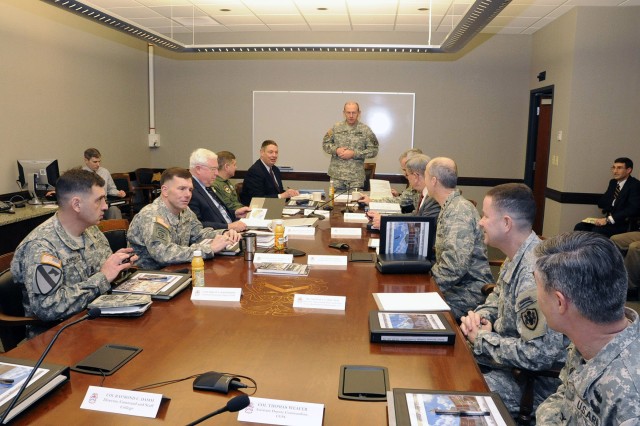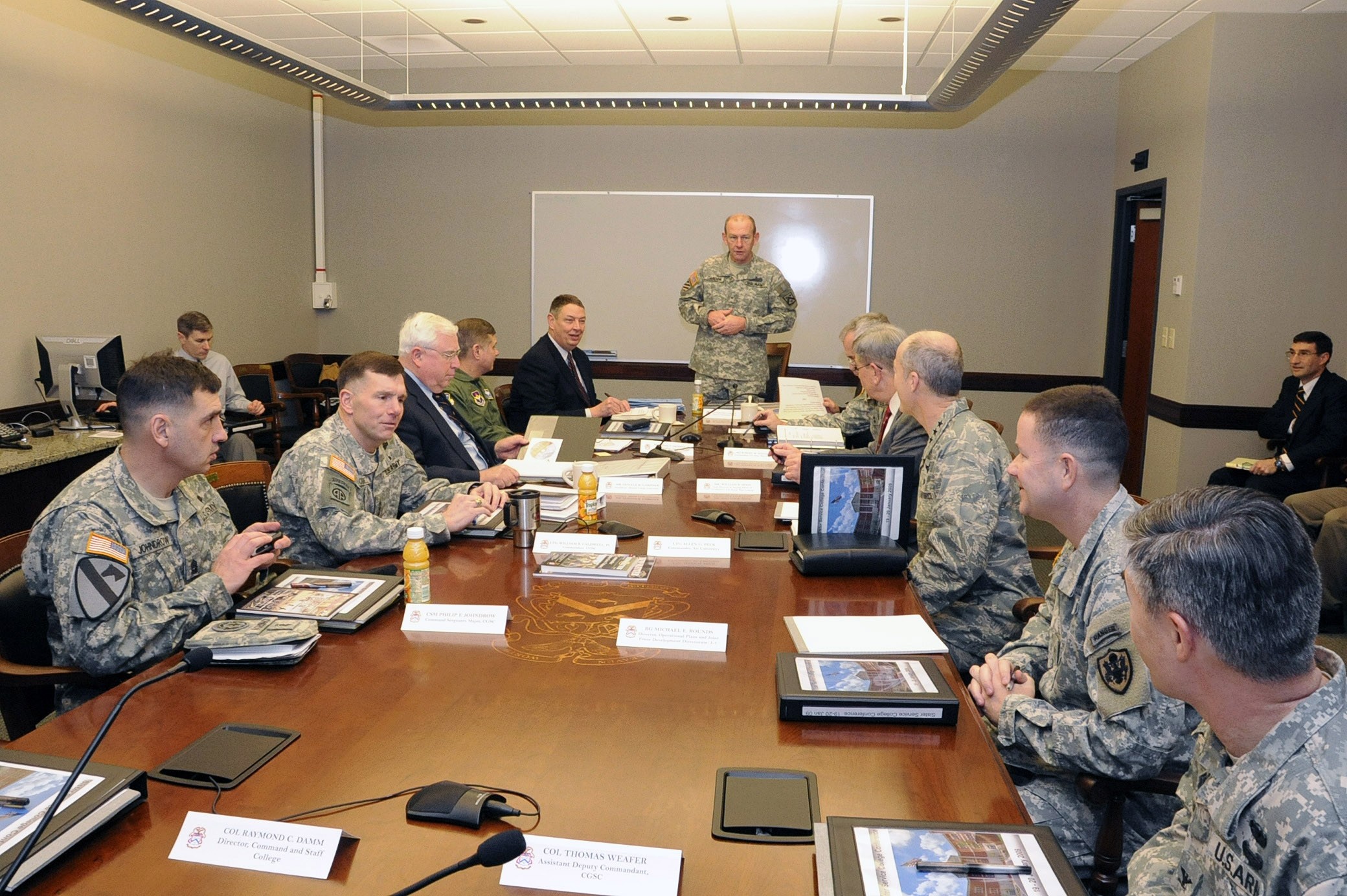
Representatives from the military services came together at the U.S. Army Command and General Staff College at Fort Leavenworth, Jan. 20 for the Sister Service College Conference. The conference provided a forum for leaders to share information, gain an understanding of common challenges and explore ways to improve the education of field grade officers.
Brig. Gen. Edward Cardon, Deputy Commandant of the CGSC, provided an overview of the Army college and emphasized CGSC\'s initiatives to increase interagency participation.
CGSC's Commandant, Lt. Gen. William Caldwell IV, added that just two years ago interagency participation was occasional, but now, 24 months later, there is a noticeable difference.
"The ultimate goal," Caldwell said, "is to have an interagency representative in each seminar group."
Caldwell said in August 09, 39 interagency students are projected to be students in CGSC's schools - 18 in Intermediate Level Education, five in the School of Advanced Military Studies, and 16 in the School for Command Preparation. Caldwell also touched upon the importance of international military students at CGSC as well as the strategic communication initiative for students.
"The information domain is becoming more important in the 21st century, " he said. "We've put a lot of emphasis in this area - every student must blog, write, engage with the community and do a media interview."
Caldwell said the idea is to routinely expose officers to the culture of engagement, "to get out and engage the community at large."
Leaders from the Air University, the Naval War College, and the Marine Corps University briefed their organizations' educational programs. Representatives from the Army War College and the Joint Staff also participated in the conference.
Following briefings, discussion topics included: military to civilian instructor ratios, balancing irregular warfare instruction with more traditional core competencies in the curricula, health and wellness initiatives, distance education programs, and techniques to ensure educational needs of the operational force are met.
One of the intents of this first Sister Service Education Conference was to focus efforts on achieving quality education across all military services. All attendees unanimously agreed on the value of the conference and the need to periodically meet to discuss Professional Military Education programs. This group will meet again next month at the Military Education Coordinating Conference hosted by the Joint Staff.

Social Sharing